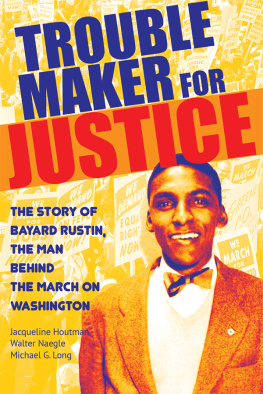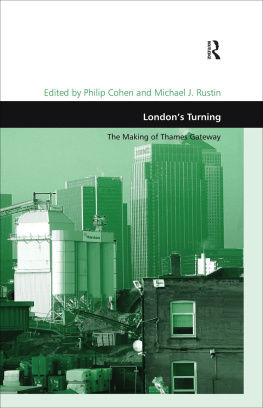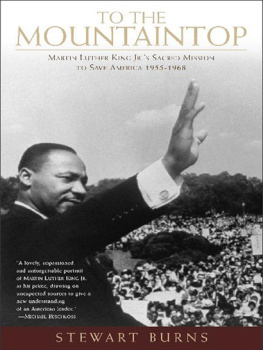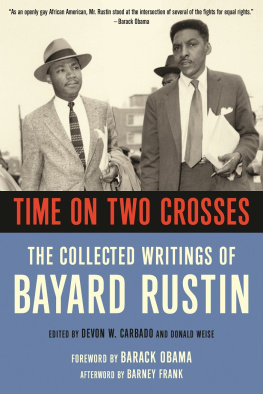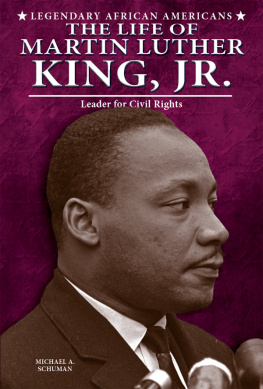ABOUT THE AUTHOR
JOHN DE MILIO is professor of history and of gender and womens studies at the University of Illinois at Chicago. A Guggenheim and National Endowment for the Humanities fellow, from 1995 to 1997 he served as the Founding Director of the Policy Institute at the National Gay and Lesbian Task Force. He earned his Ph.D. from Columbia University in 1982.
ACKNOWLEDGMENTS
ONE OF THE GREAT pleasures of finishing a book is the opportunity it provides to acknowledge the support and assistance of others. In this case, I feel especially fortunate to have received so much help at every stage along the way.
Bert Hansen first pointed me in the direction of Rustins life. Jed Mattes, my agent, negotiated for me a contract generous enough to provide a first block of free time to do concentrated research. He has maintained his interest in the book through the long years it has taken me to complete it, and has offered not only sage counsel but friendship as well. Joyce Seltzer acquired the project for Free Press, and after she left, Bruce Nichols remained committed to it through the many deadlines that I failed to meet. He also provided astute and constructive editorial advice that has made the final book better than the manuscript he originally read. Over the years, Walter Naegle, Rustins surviving life partner, has responded to repeated requests for assistance, helped me find individuals I wanted to interview, sat through an interview himself, made boxes of his photographs available to me, and, most of all, never impinged on my freedom to write Rustins biography in the way that made sense to me.
Many institutions have provided grants and fellowships that have seen me to the finish line. I began my initial exploration of Rustin while a fellow at the Center for Advanced Study in the Behavioral Sciences in Stanford, California, with funding provided by the National Endowment for the Humanities, Grant RA-20037-88, and the Andrew W. Mellon Foundation. Over the years, additional support has come from fellowships for individual research provided by the John Simon Guggenheim Memorial Foundation; the Humanities Research Centre of Australian National University; the National Endowment for the Humanities; and the Institute for the Humanities of the University of Illinois at Chicago. The University of North Carolina at Greensboro gave me a year-long research leave, and the Office of the Vice-Chancellor for Research at the University of Illinois at Chicago provided me with funds for a research assistant in the last stages of the book. The John F. Kennedy Presidential Library, the Lyndon B. Johnson Presidential Library, and the American Philosophical Society provided travel-to-collection grants.
Librarians and archivists make historical research and writing possible. I have benefited enormously from the helpful competence of staff at the following institutions: John F. Kennedy Presidential Library; Boston University; Schlesinger Library of Radcliffe College; Columbia University; New York Public Library; Schomburg Library; Tamiment Library of New York University; Swarthmore College Peace Collection; American Friends Service Committee Archives; National Archives; the Moorland-Spingarn Research Center of Howard University; Library of Congress; George Meany Memorial Archives; Martin Luther King, Jr. Center; University of Georgia; Wayne State University; and Lyndon B. Johnson Presidential Library. I especially want to mention Wendy Chmielewski of the Swarthmore College Peace Collection. Her devoted labors make it possible to reconstruct the history of pacifist agitation in the United States.
Research and writing is a collaborative process, even when only one name appears as author. The prior work of many historians and journalists has facilitated my own, and I owe a debt to everyone whose books and articles are listed in the bibliography. Three historians deserve special mention because their scholarship has been indispensable for understanding the context of Rustins life: David Garrow on Martin Luther King, Jr.; Maurice Isserman on the American left; and Lawrence Wittner on the peace movement. In addition, a number of scholars have generously shared with me documents that they found and that I might otherwise have missed: Scott Bennett, John Howard, Maurice Isserman, Nancy Kates, Bennett Singer, R. Allen Smith, and Marc Stein. Milton Viorst kindly made available to me interviews he did with Rustin and others for his fine book, Fire in the Streets, and I found them invaluable.
Over the years, I have been blessed with a succession of able student research assistants. All of them contributed mightily to the final product: Katie Batza, Laurinda Debeck, Day Irmiter, Nina Schichor, Heather Shields, Todd Shuman, Neil Soiseth, Tim Stewart-Winter, and Judith Whyte. Pippa Holloway and Amy Schneidhorst each worked with me on the project over an extended period, and responded quickly, efficiently, and creatively to my requests for yet more information on one subject or another. I could not have asked for more.
Along the way, many schools have invited me to give talks on Rustin. Comments and questions from the audience have helped me to clarify as well as modify my understanding of Rustins life. The enthusiasm of those who listened to my lectures kept me remembering that Rustins story was worth telling. The audience members (and there always was at least one) who came up to me afterward and shared their own reminiscences of encounters with Rustin have helped to enrich the final version of the biography. Special thanks go to John Ballard and Jill Mathews for organizing the Regimes of Sexuality Conference at Australian National University in 1993, and to William McFeely for inviting me to deliver a paper at the Harvard Conference on Biography that same year. These were the first venues in which I lectured on Rustins life and were particularly important to me. I am also deeply indebted to Jill Dolan, Alisa Solomon, and the Board of Directors of the Center for Lesbian and Gay Studies of the City University of New York. Their invitation to deliver the David Kessler Lecture in 1999 gave me the chance to grapple with some of the thornier issues I faced as I struggled through my first draft. And special thanks of another sort go to Mary Beth Rose and Linda Vavra, the director and associate director, respectively, of the UIC Institute for the Humanities. My final year of writing took place there, a wonderful environment in which concentrated intellectual activity and lively exchanges of ideas regularly occur. My lecture at the institute helped me sort through some of the complexities of Rustins politics in the mid-1960s, and the other fellows responded to my seminar with great and genuine interest. Sue Levine and Katrin Schultheiss constituted a dependable biweekly writing support group that year, made all the more pleasurable by the fact that we met over food each time.
A number of individuals took large chunks of time out of their own lives in order to read drafts of this manuscript and provide me with subtle and searching responses. I owe a great debt to Martin Duberman, Nan Enstad, Estelle Freedman, Gary Gerstle, Steven Lawson, Diane Middlebrook, Jim Oleson, Peter Skutches, and Nancy Stoller. I havent always taken their adviceand I will probably live to regret it but I have listened closely and their comments have made it easier for me to get it the way I wanted. Some of themNan Enstad, Estelle Freedman, Jim Oleson, and Peter Skutcheswere generous enough to read more than one draft. There is no way to calculate what I owe them.
Finally, there are some forms of thanks that wordseven for a writercant quite express. Diana de Vegh opened her home to me during long research trips in Washington, D.C., through a brutally cold winter. Estelle Freedman has been a friend and support for so long that I cant remember a time before. Ruth Eisenberg always seemed to be near a phone when I needed propping up. My time each week with Nancy Robertson in the last two years of work on the book has kept me grounded. First, last, and always is Jim Oleson. He has put up with a lot. Hes the only person happier than I am that the book is done and that Bayard has finally taken leave of our premises so that now we can get on with the rest of our life together.


